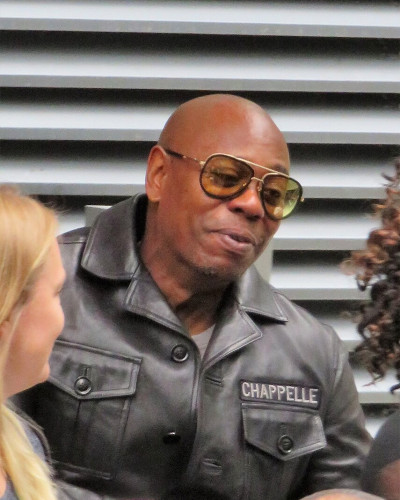Full Biography
Dave Chappelle arrived in 1973, raised in Washington, D.C. among parents deeply involved in community issues. Influenced by lively household conversations, this youngster found humor a natural tool for commentary. The Duke Ellington School of the Arts refined early theatrical abilities, granting exposure to stage presence and creative storytelling techniques. By mid-teens, small clubs around the city became testing grounds for bold comedic material. Audiences saw a sharp wit evolving from everyday observations.
A small film cameo came before the age of twenty, providing an initial glimpse into a budding screen persona. While comedic pursuits quickly demanded the spotlight, lesser-known chapters reveal broader interests. A stint learning jazz music added deeper appreciation for improvisation—improv weaving into comedic sets, forging a distinct style grounded in spontaneity. House-painting gigs supplemented meager earnings, ensuring steady progress toward bigger ambitions.
Spiritual exploration led to Islam, embraced during young adulthood, marking a meaningful but quietly managed chapter. Personal journeys also guided a relocation to rural Ohio, prioritizing simplicity and distance from fast-paced city living. There, curiosity for nature and self-sufficiency spawned experiments with sustainable farming, balancing comedic obligations with an agrarian mindset.
Family gatherings in childhood offered an informal stage, teaching how to slip jokes into conversations and read audiences in real time. This adaptability translated into consistent comedic refinement. Far from solely a performer, Chappelle channeled multiple inspirations—civic issues, music, cultural identity—into layered storytelling that resonates across societal divides.
Today’s comedic landscape often highlights recognizable events and major accolades, yet deeper layers include the local crafts, personal experiments, and introspective pursuits that shaped his worldview. The same individual who once practiced routines in cramped clubs and took odd jobs to stay afloat has quietly maintained a commitment to spiritual exploration, farmland stewardship, and communal engagement. Though recognized widely for public performances, a more nuanced tapestry emerges when considering these less-heralded influences, offering insight into what shaped one of the most distinctive comedic voices of a generation.
